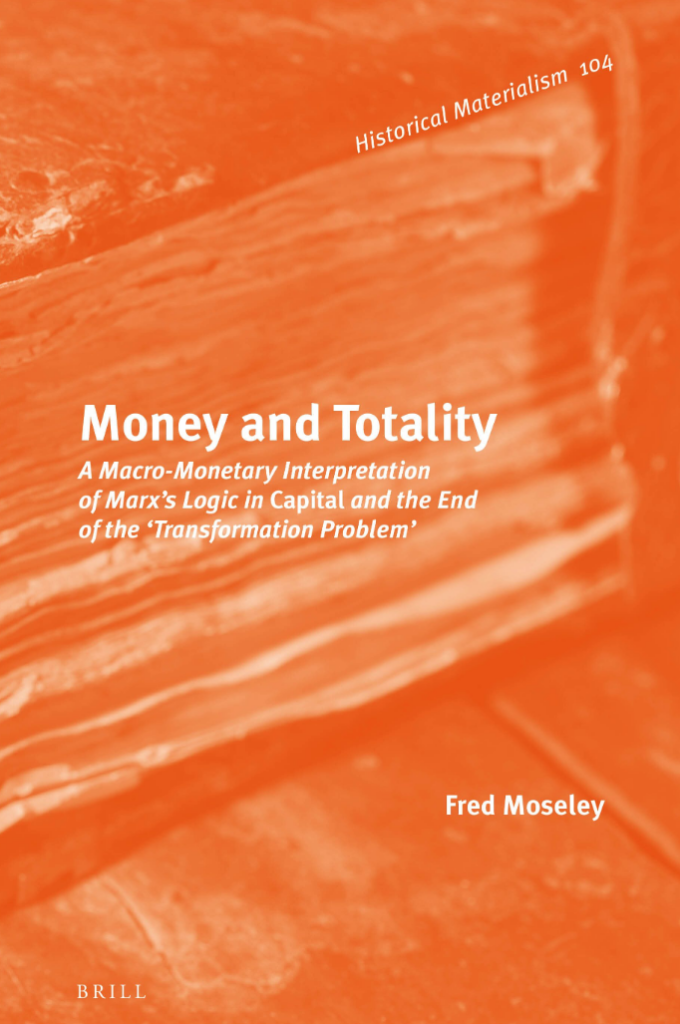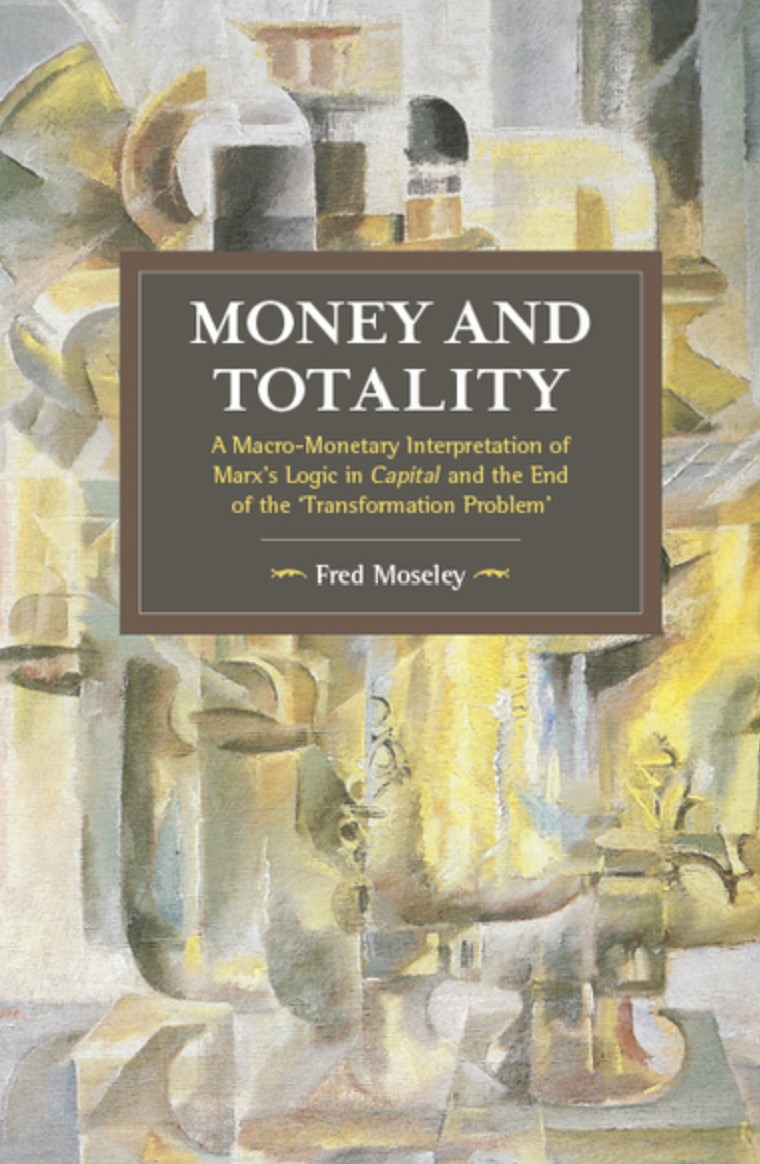Fred Moseley, Mount Holyoke College
This ambitious book presents a comprehensive new ‘macro-monetary’ interpretation of Marx’s logical method in Capital, based on substantial textual evidence, which emphasises two main points: (1) Marx’s theory is primarily a macroeconomic theory of the total surplus-value produced in the economy as a whole; and (2) Marx’s theory is a monetary theory from beginning to end and the circuit of money capital – M – C – M’ – is the logical framework of Marx’s theory. It follows from this ‘macro-monetary’ interpretation that, contrary to the prevailing view, there is no ‘transformation problem’ in Marx’s theory; i.e., Marx did not ‘fail to transform the inputs of constant capital and variable capital’ in his theory of prices of production in Part 2 of Volume III.
Biographical note
Readership
Reviews
Michael Heinrich, political scientist and mathematician based in Berlin, member of the editorial board of PROKLA, journal for critical social science“This is a comprehensive survey and summary of Fred Moseley’s research over more than thirty years into Marx’s method of analysis of values and prices in a capitalist economy. He provides a very clear explanation of his thesis that Marx’s approach has been generally completely misunderstood, and that as a consequence the usual critique of inconsistency is wrong. From this perspective, he also engages with the many alternative approaches that have been advocated, providing a thoughtful methodological critique of the various positions in the literature. Both beginners and specialists will find this book of great interest as it vigorously challenges conventional wisdom both in the history of economic thought and among Marx scholars.”
Simon Mohun, Queen Mary University of London
“From the nineteen century until today, Marx’s critics have rejected his theory on the grounds that the Volume 3 account of prices of production contradicts the analysis of labor time values in Volume 1. Marx’s defenders have responded by attempting to “transform” labor values into prices of production in ways that avoid this criticism and enable some of Marx’s key claims to still be affirmed. In this brilliant book Moseley provides extensive textual evidence from all the drafts of Capital that neither critics nor advocates have adequately understood Marx’s methodological framework. Marx’s project was not to transform labor values into prices of production; Capital is a monetary theory from beginning to end. The same money quantities are first comprehended on an aggregate level, and then on a more concrete level where differences among sectors are taken into account. Moseley provides elegant algebraic proofs that all of Marx’s key claims can be established within this framework. This book may well overcome the obsession with the “transformation problem” once and for all, moving debates about Marx’s theory onto more fruitful paths. It is surely one of the most important contributions to Marxian scholarship published in our time.”
Tony Smith, Iowa State University
Table of contents
Bibliographical NotePart I: A Macro-Monetary Interpretation of Marx’s Logical Method
1. Introduction: A ‘macro-monetary’ interpretation of Marx’s theory
2. Algebraic summary: A ‘macro-monetary’ interpretation of Marx’s theory
3. Marx’s Theory of the Production and Distribution of Surplus-Value: The Prior Determination of the Total Surplus-Value
4. The Circuit of Money Capital: M Presupposed
5. Money Has No Price:Marx’s Theory of Money and the Transformation Problem
Part II: Other Interpretations of the Transformation Problem
6. Standard Interpretations of Marx’s theory
7. Shaikh’s Iterative Interpretation
8. The New Interpretation (Foley, Duménil, Mohun)
9. Temporal Single System Interpretation (Kliman and McGlone)
10. The Rethinking Marxism Interpretation (Wolff, Roberts, and Callari)
11. The Organic Composition of Capital Interpretation (Fine, Saad-Filho)
12. Replies to Criticisms of my Macro-Monetary Interpretation (Laibman, Bellofiore)
Part III: Conclusion
Conclusion
Index


